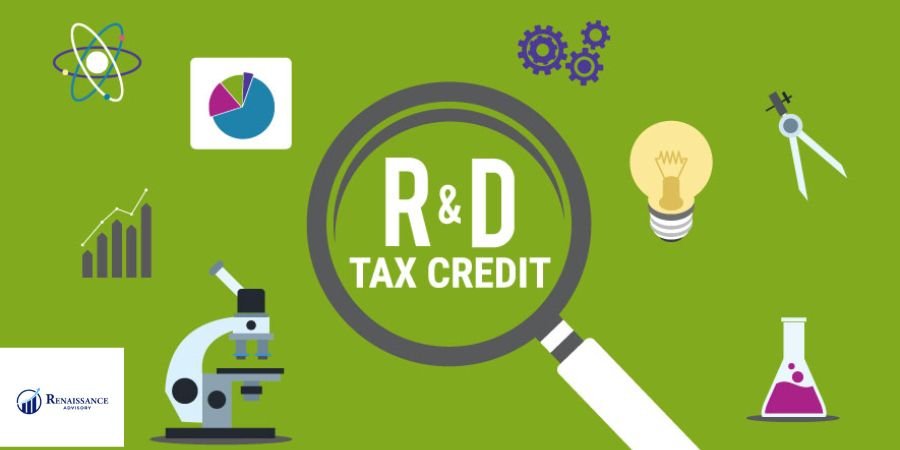
When you run a business, there are so many obligations: dealing with employees, keeping up with the competition, and last but not least, maintaining payroll and taxes. One of the most effective ways employers can save on costs while providing real value to their team is through an IRS Section 125 plan.
These plans (also called cafeteria plans) enable employees to fund the eligible benefits using pre-tax funds. That one basic change can result in significant payroll savings for businesses and also enable employees to take home more. The trick, however, is that the IRS has a very strict set of guidelines regarding the manner in which these plans must be established and administered. Failure to comply can result in the plan losing its tax benefits and exposing employers to risk.
Here in the article, we shall deconstruct the most important compliance requirements an employer must meet, the reason compliance matters, and how Renaissance Advisory assists companies to maximize savings, yet remain 100 percent IRS-compliant.
Why Compliance Matters in an IRS Section 125 Plan
When employers implement an IRS Section 125 plan, they’re essentially offering their team a tax-saving benefit. Employees can set aside pre-tax income for eligible expenses such as health premiums or dependent care, while businesses save on payroll taxes.
But the IRS doesn’t just hand out tax savings without oversight. If the plan isn’t administered properly, two things can happen:
- Employers may lose the payroll tax savings they’ve been counting on.
- Employees could be hit with unexpected taxable income.
In other words, compliance isn’t optional; it’s the foundation that protects both the company and its employees. Renaissance Advisory emphasizes that every IRS Section 125 plan must be set up with precision and reviewed regularly to make sure it aligns with IRS requirements.
Core Compliance Requirements for Employers
If you’re considering or already running a cafeteria plan, here are the key elements you need to understand:
1. Written Plan Document
The IRS requires every Section 125 plan to have a formal written document. This isn’t just a formality; it must spell out the rules of the plan, including:
- Which benefits are offered
- Eligibility rules for employees
- Procedures for making or changing elections
Without this document, the plan doesn’t technically exist in the eyes of the IRS.
2. Eligible Benefits Only
Not every benefit qualifies under an IRS Section 125 plan. Things like health insurance premiums, dental, vision, or dependent care are eligible, but cash benefits or some fringe benefits do not qualify. Offering ineligible benefits can jeopardize the entire plan.
3. Nondiscrimination Testing
To prevent plans from favoring highly compensated employees, the IRS requires annual nondiscrimination testing. Employers must demonstrate that the plan offers fair benefits to all eligible employees. Skipping or failing this test could cause benefits for certain employees to become taxable.
4. Election Rules
Employees are usually required to make benefit elections prior to the start of the plan year, and they become irrevocable unless one experiences a qualifying life event (marriage, birth, or change of employer, etc). These rules should be followed and adhered to by the employers.
5. Recordkeeping and Reporting
Accurate records are critical. Employers should maintain detailed documentation of elections, plan documents, and testing results. Having these ready ensures compliance during an IRS audit.

How Section 125 Plans Tie into Tax Return Programs
At first glance, cafeteria plans may seem separate from tax return programs, but the connection is real. By offering a compliant IRS Section 125 plan, employers:
- Reduce payroll taxes, which directly impact the company’s bottom line.
- Provide employees with benefits that can lower their taxable income, giving them more favorable results on their individual tax return programs.
- Keep benefits fully aligned with IRS guidelines, ensuring that tax savings hold up during filing and review.
Employers who fail to comply risk turning what could be an effective cost-saving tool into a liability at tax time. Renaissance Advisory helps businesses make cafeteria plans fit into the larger tax return programs so that everything aligns seamlessly with tax return programs.
The Renaissance Advisory Difference
Many employers hesitate to set up or manage cafeteria plans because of the compliance details. That’s where Renaissance Advisory steps in. Their approach is built on three principles:
- 100% IRS Compliance: Every IRS Section 125 plan designed through Renaissance Advisory is fully aligned with current regulations.
- No Disruption to Existing Benefits: Plans integrate smoothly with what you already offer employees.
- Proven Savings: Employers routinely see payroll tax savings while employees enjoy more value from their benefits.
The firm operates on a contingency-based model, meaning businesses only pay if they save. This makes it a risk-free way for employers to pursue compliance and savings together.
Practical Benefits for Employers
A compliant cafeteria plan delivers clear advantages:
- Lower payroll taxes for the business.
- Stronger employee retention through competitive benefits.
- Smoother alignment with tax return programs.
- Peace of mind knowing the IRS requirements are met.
These plans aren’t just about cutting costs; they’re about building long-term stability for both the company and its employees.
Common Mistakes Employers Make
Even well-meaning businesses can stumble when managing their Section 125 plan. The most common pitfalls include:
- Offering ineligible benefits.
- Skipping nondiscrimination testing.
- Not updating plan documents regularly.
- Treating elections casually without enforcing IRS rules.
Each of these mistakes can undo the tax advantages the plan was meant to deliver. Renaissance Advisory’s process ensures that employers avoid these costly errors.
Take the Next Step Toward Compliance and Savings
Now is the time to act. If you’re considering a cafeteria plan, or already have one and are unsure about its compliance, now is the time to act. There is no second chance at compliance with the IRS, and with a helping hand, you can gain maximum benefits, but do so without the risk.
Book your 10-minute consultation today and find out how much you may save with a compliant Section 125 plan. Renaissance Advisory simplifies the process of compliance, automatically saves money, and measures outcomes.
Final Thoughts
An IRS Section 125 plan is one of the most powerful yet underutilized tools for employers. When administered properly, it can provide business and employee tax savings and can also become an integrated part of more comprehensive tax returns programs. But most significant is compliance; compliance makes the plan valid, effective, and risk-free.
In the case of Renaissance Advisory, employers are able to focus on their business, knowing that their cafeteria plan is not only compliant but will also help them in the most effective manner possible.
FAQs
- What is an IRS Section 125 plan?
A: It’s a cafeteria plan that lets employees use pre-tax dollars for benefits, while employers save on payroll taxes and strengthen their tax return programs.
- What rules must employers follow?
A: They need a written plan, nondiscrimination testing, clear election rules, and proper recordkeeping to keep an IRS Section 125 plan compliant.
- How does it affect tax return programs?
A: A compliant plan lowers payroll taxes for the company and reduces taxable income for employees, improving both business and personal tax return programs.
- What happens if a plan isn’t compliant?
A: The IRS Section 125 plan could lose its tax benefits, increasing taxable income and creating problems during tax return programs.
- How can Renaissance Advisory help?
A: They set up and manage compliant IRS Section 125 plans that align with tax return programs and deliver proven payroll tax savings.

